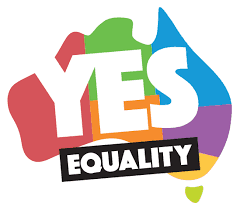To Tweet or Not to Tweet?
(Courtesy blog.snapable.com)
Meagan Dill
Let’s face it: your wedding day is probably the day of your life that you’re most likely to look drop-dead gorgeous in any and all photos posted on social media. For this reason – okay, and others – the trend of giving your wedding a specific hashtag and asking guests to post pictures online using that hashtag has been gaining popularity for quite some time now. But at what cost?
While it’s exciting and fun to see your wedding from the perspective of your guests, the hashtag wedding can actually end up causing a heck of a lot of unintended and unforeseen problems. In response, an opposing trend has sprung up: the unplugged wedding, where guests are requested to put down their phones and be fully present in the moment.
Hear that? It’s the sound of professional wedding photographers everywhere rejoicing.
You may be wondering how much damage a couple of pictures on Instagram or Facebook or Twitter, or even all three, could really do. Turns out, quite a lot. The main issue is that the hashtag wedding often results in guests jostling to get a picture of a particular moment. This can heavily compromise the hired professional photographer’s ability to capture the event and essentially to perform the job he or she was hired to do. One of the most common complaints is guests jumping in the way of their shot or entering the frame of the shot at the crucial moments, essentially resulting in a ruined professional picture – all for the sake of getting an amateur shot for social media. Other problems include white-out from harsh camera phone flashes or the appearance of a coloured circle of light (usually red) in the picture from a camera phone’s focusing mechanism.
Too often people assume that literally anything can be fixed in post-processing of pictures. And yes, while the wonders of Photoshop are vast and awe-inspiring, some things cannot be undone. For example, if overexposure from a guest’s flash renders the bride’s face featureless and makes her dress blend right into the white background, no amount of tweaking is going to get that picture to the natural state it would have been in had it not been for that pesky flash.
That said, the unplugged wedding should be approached with caution, too. Firm and clear boundaries should be set and guests must be well-informed of this. For example, a couple might request that guests turn their phones off completely for the ceremony, or might just ask that they do not take pictures. Controlling the use of cellphones becomes trickier in a party atmosphere, however, so the reception should be tackled strategically. The solution, though, is not to go around confiscating phones or confronting people harshly. This only results in coming off as a diva, or even worse, the dreaded Bridezilla. A good compromise might be to publically request (perhaps via the DJ or band) that guests should please not post their own pictures online until after the celebrations, and that during special moments like speeches and dances they should avoid blocking the photographer’s view. That way, the photographer has a real chance to get their best shots and guests won’t get drawn into checking retweets or likes when they should be partying it up.
Personally, I think the idea of an unplugged wedding is pretty cool, and it would work especially well with the rustic wedding trend. Would you have an unplugged wedding, or is hashtagging the way to go?







